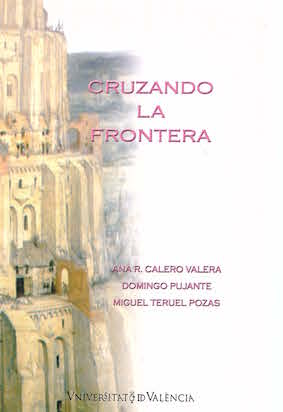Good bye, Lenin!: ¿Alemanes no alemanes?
DOI:
https://doi.org/10.7203/qf-elit.v12i0.5035Paraules clau:
mon parent, realitat, intégratif, procés de reconeixement Resum
Resum
L'objectiu d'aquesta contribució és analitzar estilística, política i, sobretot, psicològicament la pel·lícula Good Bye, Lenin! Des del punt de vista psicològic, trobem personatges que no només eren típics de l'Alemanya de l'Est, sinó que continuen existint quinze anys després.La pel·lícula il·lustra el drama personal d'un protagonista que la reunificació ha deixat sense pàtria. La malaltia de la mare porta al protagonista, d'una banda, a viure en el passat fent ressuscitar el règim de la RDA. D'altra banda, aquest personatge ha de viure en el present, exposant-se a la lluita per la supervivència d'una democràcia i intentant defensar-se en aquest nou món.
 Descàrregues
Descàrregues
Descàrregues
Publicades
Com citar
-
Resum281
-
PDF (Español)3457
Número
Secció
Llicència
 Este obra está bajo una licencia de Creative Commons Reconocimiento-NoComercial-SinObraDerivada 4.0 Internacional.
Este obra está bajo una licencia de Creative Commons Reconocimiento-NoComercial-SinObraDerivada 4.0 Internacional.
Tots els documents inclosos a OJS són d'accés lliure i propietat dels seus autors i/o institucions editores, i per tant, qualsevol acte de reproducció, comercialització, comunicació pública o transformació total o parcial necessita el consentiment exprés i escrit d'aquests.
________
Authors who publish with this journal agree to the following terms:
- Authors retain copyright and grant the journal right of first publication with the work simultaneously licensed under a Creative Commons Attribution License that allows others to share the work with an acknowledgement of the work's authorship and initial publication in this journal.
- Authors are able to enter into separate, additional contractual arrangements for the non-exclusive distribution of the journal's published version of the work (e.g., post it to an institutional repository or publish it in a book), with an acknowledgement of its initial publication in this journal.
- Authors are permitted and encouraged to post their work online (e.g., in institutional repositories or on their website) prior to and during the submission process, as it can lead to productive exchanges, as well as earlier and greater citation of published work (See The Effect of Open Access).



